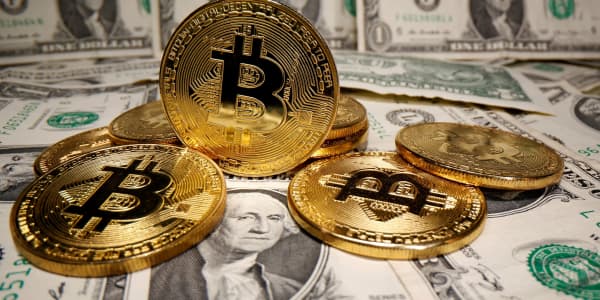
Renowned economist Jim O'Neill says investors should overlook the growing debt pile in China, highlighting various positive factors for the world's second-largest economy.
"I can't get excited about the debt issue," Jim O'Neill, former chairman of Goldman Sachs Asset Management, told CNBC Tuesday.
"Not least because in the past few months there's evidence that the rise of debt growth has slowed pretty dramatically and indeed with nominal GDP (gross domestic product) growth accelerating, I think even some of the doom and gloom people about China would concede that the scale of the debt problem has come down a little," O'Neill added.
The credit-fueled economy has been criticized for presenting one of the greatest risks to the global economy. China wants to double the size of its economy between 2010 and 2020, even if that means growing debt in the non-financial sector.
The International Monetary Fund said in August that "international experience suggests that China's credit growth is on a dangerous trajectory, with increasing risks of a disruptive adjustment and/or a marked growth slowdown." The fund projected at the time that non-financial sector debt, which includes households, corporates and government debt is set to reach almost 300 percent of its GDP by 2022.
But according to O'Neill, the Chinese debt issue isn't such a big problem, given that "it's a country with an enormous amount of savings."
Earlier on Tuesday, fresh data from China disappointed the markets, with retail sales and industrial production figures missing forecasts. However, O'Neill noted that during Singles Day, which took place last Friday, consumers broke all previous records and spent more than $25 billion.
"Certainly, I don't think we have to worry about the Chinese consumer slowing down too much," he said.
The big influencer
According to O'Neill, the powers of the Chinese economy go well beyond its borders and could ultimately affect monetary policy in Europe.
"Most interesting thing I've seen this year, is that by the end of last year's Germany's number one trade partner is now China," O'Neill said, highlighting that it overtook France and the U.S. for the first time ever.
As a result, "you could have, in the biggest scheme of things, what's going on with the Chinese consumer influencing perceptions of the European cycle, influencing European monetary policy."
The man who coined the term BRICs also added that if the Chinese economy doesn't see growth slowing down to 6.5 percent, it will think about tightening monetary policy next year "and given China's importance for everything else, that would have a huge knock-on (effect)."






